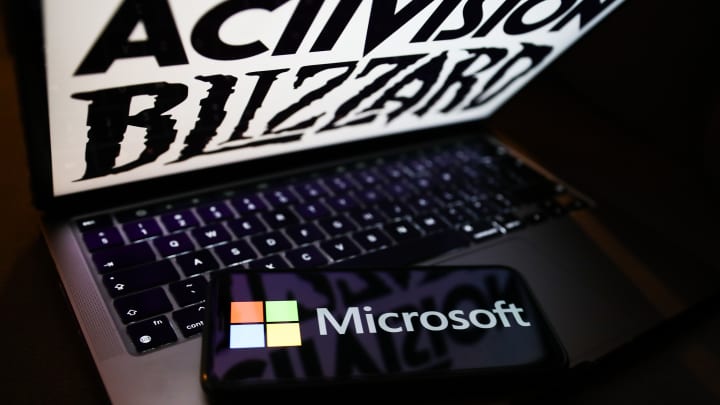
In April, as the deal raised anti-competitive concerns in the nascent cloud gaming market. The acquisition could boost Microsoft's mobile gaming presence where it is largely absent.
Regulators worry that Microsoft may to Activision's console and PC video games, especially for globally successful games like Call of Duty — and make them exclusive to Xbox and other Microsoft platforms.
U.S. regulators , but a of Microsoft and Activision Blizzard, allowing the deal to move forward in the U.S.
Meanwhile, after Microsoft offered remedies to allay competition concerns, such as royalty-free licenses to cloud gaming platforms to stream Activision games, if a consumer has purchased them.
On regulatory concerns, Smith said: "We haven't tried to dismiss them. We haven't tried to downplay them. We haven't tried to ignore them."
"We've worked to address them, and by addressing them, we have put together a transaction that will advance competition, while also eliminating the concerns on the anti-competitive side that some people had," he told CNBC's Martin Soong on the sidelines of the in New Delhi.
"I think it will be up to the regulators, especially now in the U.K., to decide whether that path is clear," he said in an interview aired Monday.
U.K. regulators, the Competition and Markets Authority, said that under the new deal, Microsoft will not acquire cloud rights for existing Activision PC and console games, or for new games released by Activision for the next 15 years.
Instead, French gaming publisher will acquire those rights before Microsoft's acquisition of Activision, the CMA added.
"That to me, is not just a recipe for this transaction," said Smith.
"I think that in the world of technology, whether we're talking about software or hardware or pharmaceuticals, there are times when companies can come together in advance innovation, produce better products, and there may be steps that need to be taken at the same time to address regulatory concerns."




